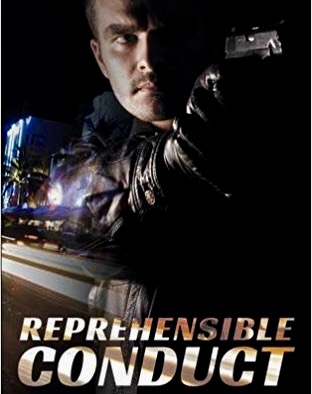It is a common public belief that the losing party in litigation pays the winning parties legal fees, but that is not the case unless the court makes an extraordinary award of special costs.
The usual award of costs is to the winning party on a “party and party” basis tied to a scale of units in the Supreme Court Rules for steps in the litigation process that essentially awards only a portion of what the actual legal fees.
Special costs provide a much greater degree of indemnity than the usual award of costs .
In Negas v Yehia 2021 BCSC 254 the court awarded approximately $1.2 million dollars in legal fees against the respondent in a protracted family case that lasted 7 years concerning $19 million assets.
The award of special costs was essentially an award of full indemnity to the wife of her legal fees by reason of the “ reprehensible conduct” of her partner during the course of the litigation that resulted in the award of special costs against him.
What Are Special Costs?
The nature and purpose of special costs were described by our Court of Appeal in 567 Hornby Apartment Ltd. v. Le Soleil Restaurant Inc., 220 BCCA 69 (“Le Soleil”):
“Special costs are not compensatory; they are punitive: Smithies Holdings Inc. v. RCV Holdings Ltd., 2017 BCCA 177 at para. 56.
The purpose of special costs is to censure and deter litigation misconduct, not to compensate the plaintiff: Tanious v. The Empire Life Insurance Company, 2019 BCCA 329 at para 53”
Special costs are fees a reasonable client would pay a reasonably competent solicitor to do the work described in the bill: Bradshaw Construction Ltd. v. Bank of Nova Scotia (1991), 54 B.C.L.R. (2d) 309 (S.C.), para. 44.
A special costs award is to provide an indemnity to the successful party, but not a windfall; Gichuru v. Smith, 2014 BCCA 414, at para. 155.
Although there may be a close relationship between actual legal expenses and special costs, they are not necessarily the same: Tanious v. The Empire Life Insurance Company, 2019 BCCA 329, para. 49.
This is because legal fees that a lawyer can recover from a client are determined on a subjective standard, pursuant to the Legal Professions Act, whereas only fees that are objectively reasonable in the circumstances are recoverable as special costs: Gichuru, para. 155;
REPREHENSIBLE CONDUCT
Special costs are not generally awarded unless the parties conduct has been reprehensible during the course of the trial, including conduct that is scandalous, outrageous, or other forms deserving of rebuke.
In Mayer v Osborne Contracting Ltd 2011 BCSC 914 at para. 11 the court set out those circumstances that warranted the attraction of special costs:
1) where a party pursues a meritless claim and is reckless with regard to the truth;
2) where a party makes improper allegations of fraud, conspiracy, fraudulent misrepresentation, or breach of fiduciary duty;
3) Where a party has displayed reckless indifference by not recognizing early on that it’s claim was manifestly deficient;
4) Where a party made the resolution of an issue, far more difficult than it should have been;
5) Where a party in a financially superior position to others brings proceedings, not with a reasonable expectation of affairs are favorable outcome, but in the absence of merit in order to impose a financial burden on the opposing party;
6) Where a party presents a case so weak that it is bound to fail and continues to pursue its meritless claim after it is drawn to its attention that the claim is without merit;
7) Where a party brings a proceeding for an improper motive;
8) Where a party maintains unfounded allegations of fraud or dishonesty ( include undue influence);
9) Where a party pursues claims frivolously or without foundation.
Smithies Holdings Inc. v RCV Holdings Ltd 2017 BCCA 177 held that special costs should only be awarded to punish reprehensible conduct in the course of the litigation, and should not be awarded for pre-litigation conduct.
The court also noted however that there may arise circumstances where special costs may be awarded because of reprehensible conduct giving rise to the litigation, particularly where the fruits of the litigation do not provide any appropriate compensation in relation to the reprehensible conduct.
Allegations of pre litigation fraud or undue influence where there is scant evidence have been known to incur awards of special costs.
In Wilson v Lougheed 2012 BCSC 1166 the court awarded special costs for four of the 14 day trial against an executor who crossed the line in a highly charged wills variation case advanced by his daughter.
Registrar’s Criteria In Assessing Special Costs
Generally speaking the trial judge will not specify the amount of special costs and will instead refer the matter to a registrar to conduct a hearing. Registrars develop knowledge and skill in the assessment of legal bills and court costs that is seldom matched by that of a trial judge. It is however within the jurisdiction of a trial judge to assess the amount of costs.
Rule 16-1(2) sets out matters that apply on an assessment of special costs:
On an assessment of special costs, a registrar must
(a) allow those fees that were proper or reasonably necessary to conduct the family law case, and
(b) consider all of the circumstances, including the following:
(i) the complexity of the case and the difficulty or the novelty of the issues involved;
(ii) the skill, specialized knowledge and responsibility required of the lawyer;
(iii) the amount involved in the case;
(iv) the time reasonably spent in conducting the case;
(v) the conduct of any party that tended to shorten, or to unnecessarily lengthen, the duration of the family law case;
(vi) the importance of the case to the party whose bill is being assessed, and the result obtained;
(vii) the benefit to the party whose bill is being assessed of the services rendered by the lawyer;
Applies to a Team of Lawyers
The test to be applied does not necessarily limit special costs to fees that would be charged by one lawyer only.
It now is quite common for a law firm to have more than one lawyer work on a file. Delegating some of the work to a competent lawyer who bills at a lower hourly rate than the lead lawyer can benefit the client by reducing overall legal fees.
When assessing special costs the overall handling of the file is to be considered to determine if the fees claimed as special costs are objectively reasonable in all the circumstances.
That standard applies whether one lawyer or more than one lawyer performs the legal services claimed as special costs.
The fees charged by the claimant’s lawyers are fees a reasonable client would pay reasonably competent counsel for the work done to conduct this case.
When a trial judge orders special costs of a proceeding, the award of special costs includes the cost of any special costs application and any subsequent proceedings to assess costs unless the court otherwise orders.
FIDUCIARIES
Special costs are routinely awarded to a party who is a fiduciary in circumstances where there has been no reprehensible conduct by that party or any other litigant. Mawdsley v Meshen 2011 BCSC 923.
For example an executor/trustee , in the absence of misconduct, is ordinarily entitled to recoup from the estate the legal costs reasonably incurred in litigation such as in a wills variation claim where the executor must be named as a party.
In Re Campbell Estate 2015 BCSC 774 an administrator was removed and ordered to pay special costs of the application on the basis that his conduct throughout was reprehensible and called for rebuke.
CONTINGENCY FEE
In an ICBC case Norris v Burgess Oct.14, 2015 Vancouver registry M123216 BCSC the plaintiff was awarded special costs for a 20 day jury trial in the amount of the plaintiff’s contingency fee based on the award of $462,000 in damages. We don’t know the percentage of the fee agreement but it is likely in the range of %25-331/3.
The defendant insurance company had produced videotapes of the plaintiff in 2013 and 2014, but contrary to a court order to disclose all surveillance videos on or before October 23, 2015, a video from 2015 was not disclosed until after the third week of trial.
SUMMARY OF APPLICSABLE PRINCIPLES
In Westsea Construction Ltd. 0759553 BC ltd 2013 BCSC 1352 stated:
1) the court must exercise restraint in awarding special costs;
2) The party seeking special costs must demonstrate exceptional circumstances to justify a special costs order;
3) Simply because the legal concept of reprehensible and he captures different kinds of misconduct does not mean that all forms of misconduct are encompassed by this term;
4) Reprehensible conduct will likely be found in circumstances where there is evidence of improper motive, abuse of the court’s process, misleading the court and persistent breaches of the rules of professional conduct and the Rules of Court that prejudice the applicant;
5) Special costs can be ordered against parties and non parties alike; and
6) the successful litigant is entitled to costs in accordance with the general rule that costs follow the event. Special costs are not awarded to a successful party as a bonus for further compensation for that success.
The question in every case is whether on a consideration of the substandard conduct of the party making the allegation and the conduct of the litigation itself, the person or persons against whom the order is sought has acted in a manner that is sufficiently reprehensible to a warrant chastisement of the court.
CONCLUSION
Two trends have emerged with respect to the issue of court costs in estate litigation over the last 20 years:
1) the usual rule that costs follow the event, as opposed to the estate paying all the parties costs has become the norm. Exceptions occur such as when the litigation is as a result of the testator’s actions.
2) the increased willingness of the court to award special costs as a means of discouraging and chastising a litigant whose conduct is considered by the court to fall within the classification of reprehensible. Reprehensible conduct is defined broadly and encompasses misconduct ranging from scandalous and outrageous at one extreme, to milder forms of misbehavior warranting judicial rebuke at the other.
Stated bluntly, the courts are extremely busy and a litigant who wastes the court’s time runs a significant risk of having to pay the other parties legal fees by an award of special costs.










